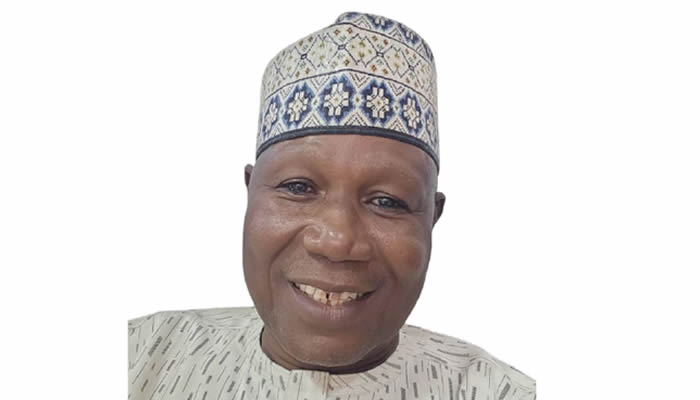The Benue Massacre: A Critical Analysis of Governmental Response and the Path Forward
The recent massacre in Yelewata, Benue State, where over 200 innocent lives were brutally extinguished by suspected Fulani herdsmen, has once again exposed the deep-seated security challenges plaguing Nigeria. While both the Federal and Benue State governments have publicly acknowledged the incident, their responses have been met with widespread criticism and disappointment. Dr. Bitrus Pogu, National President of the Middle Belt Forum, articulates this dissatisfaction, emphasizing the inadequacy of mere pronouncements and the urgent need for concrete action. He argues that President Tinubu’s visit to Benue, though a step forward from his predecessor’s indifference, lacked the gravity and decisive action the situation demanded. The President’s call for arrests, while welcome, falls short of the decisive measures required to bring the perpetrators to swift justice and deter future atrocities. Dr. Pogu advocates for a more assertive stance, with clear timelines given to security agencies and public accountability for their performance. He envisions a scenario where security personnel are held directly responsible for failing to respond to distress calls, fostering a sense of urgency and responsibility within the security apparatus.
Dr. Pogu also criticizes the Benue State Governor’s handling of the crisis, particularly his alleged downplaying of the death toll. He perceives this as a political maneuver, prioritizing image management over the stark reality of the immense human tragedy. This perceived lack of empathy further fuels the growing sense of frustration and abandonment among the Benue people. The Governor’s resistance to calls for self-defense also draws criticism, as communities feel increasingly vulnerable and desperate for protection. Dr. Pogu emphasizes that self-defense becomes a desperate last resort when the government fails to provide adequate security. He warns that the current trajectory, if unchecked, could lead to a Somalia-like scenario, where the complete breakdown of law and order forces individuals to take the law into their own hands.
Beyond the immediate response to the Yelewata massacre, Dr. Pogu identifies broader systemic issues that fuel the persistent cycle of violence. He dismisses the notion of the conflict being a communal clash, arguing that it is a deliberate and targeted campaign by armed groups, predominantly Fulani, to displace indigenous populations and seize their ancestral lands. He points to the case of Wase, where the government allegedly rewarded the perpetrators of violence by granting them control over the land they had violently usurped. This act, he argues, creates a dangerous precedent, implicitly condoning violence as a means to acquire land. Dr. Pogu suggests that this pattern is evident across the country, with Fulani herdsmen implicated in similar attacks in the North-West, North-Central, South-West, and South-South, raising the specter of a nationwide conflict. He warns that the continued targeting of specific communities could ignite a broader ethnic conflict, with potentially catastrophic consequences.
The lack of effective security response, coupled with the perceived government inaction, has led to increasing calls for self-defense among Benue residents. Dr. Pogu supports this right, stressing that self-preservation becomes paramount when the state fails in its primary duty to protect its citizens. He warns, however, that such a scenario could further destabilize the country, leading to a situation akin to Somalia, where armed factions vie for control. He underscores the need for a proactive and decisive approach from the Federal Government to prevent this descent into chaos.
Addressing the root causes of the conflict requires a paradigm shift in security strategies. Dr. Pogu advocates for a move away from static security deployments, where troops are stationed in fixed locations, waiting to react to attacks. He suggests leveraging technology and intelligence to identify and neutralize threats proactively. He emphasizes the need for a holistic approach, acknowledging that addressing the problem in one location will only lead to its resurgence elsewhere. This requires a national strategy that targets the underlying drivers of the conflict, including the perceived impunity enjoyed by the attackers and the issue of land ownership.
Central to Dr. Pogu’s argument is the need for restructuring the security apparatus. He calls for the establishment of state and local government police forces, arguing that local communities are best equipped to understand and respond to their own security needs. He expresses skepticism about federally controlled security initiatives, fearing they could be manipulated or infiltrated by the very elements they are meant to combat. He cites the proposed forest guard initiative as an example, arguing that it could inadvertently provide cover for attackers to operate within communities. Local control over security, he believes, is essential for effective protection and would deter potential aggressors.
Finally, Dr. Pogu offers advice to the Benue State Governor, urging him to prioritize the security and welfare of his people above political considerations. He emphasizes the importance of acknowledging the scale of the tragedy and demonstrating genuine empathy for the victims. He argues that earning the trust and support of the people is crucial for effective governance and long-term stability. He warns that downplaying the crisis and engaging in political maneuvering will only erode public confidence and exacerbate the situation. He urges the Governor to take decisive action to address the ongoing violence and ensure the safety and security of all Benue residents. He emphasizes that true leadership lies in serving the people and protecting their interests, not in political maneuvering or denial of the stark reality confronting the state.


